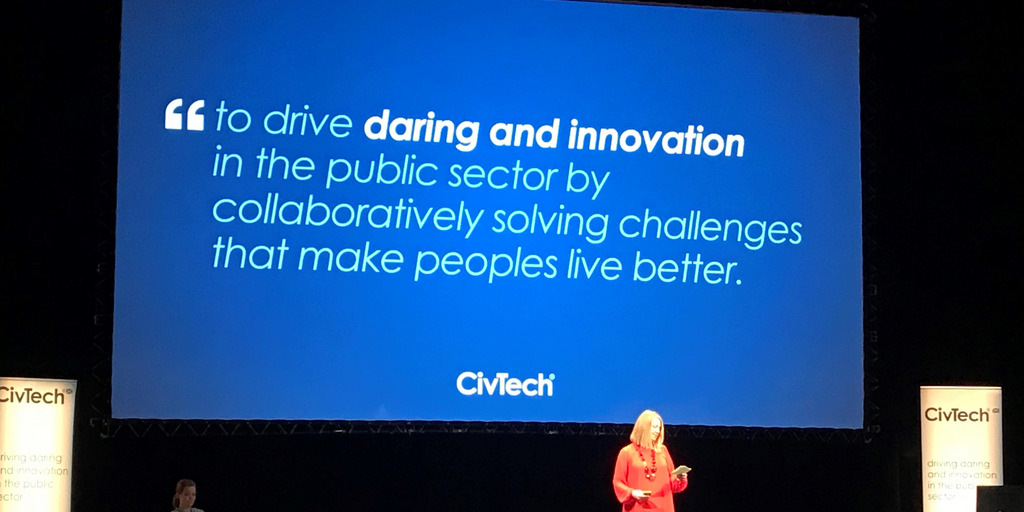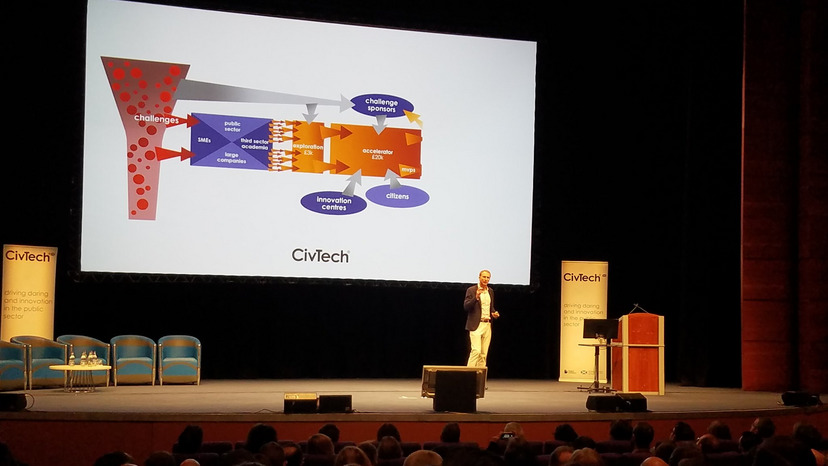Usually when a public sector institution requires a certain product or service, a call for tenders is made, with a list of specifications providing detailed information on the services expected from the contractor and how those services should be structured. The process takes considerable time and effort, and it is rarely possible to include innovative elements or engage in any sort of creative exchange. After all, how are public administrators supposed to address challenges when they are unaware of the potential solutions? How can they call for a solution to a problem when they don’t even know what the best one might be?

© Bertelsmann Stiftung
Introducing innovation and creativity to the public sector – Scotland leads the way
Public administrators do not have the reputation of responding to problems with particularly innovative solutions. Yet if you look at the complex challenges they face because of issues such as demographic change and digital transformation, new approaches are not only desirable, they’re crucial. As the CivTech program in Scotland shows, problems can be solved when public sector organizations join forces with innovative start-ups.
Scotland – an international leader
The terms “civic tech” and “govtech” are shorthand for new approaches that use technology to drive the networking of public administrators, businesses and citizens, tapping their collective potential to solve problems. In recent years, Scotland has emerged as the international leader in this area. Since 2016, the CivTech program, part of the Scottish government, has had the mission of “driving daring and innovation in the public sector.”
The process, called the CivTech Innovation Flow, works as follows: Public sector institutions define a challenge they want to address and publicize it using an open process. Individuals, teams and businesses can submit proposed solutions, three of which are selected and further developed during the exploration phase, which lasts three weeks. The team with the most convincing idea then joins the program’s accelerator. Over the course of four months, it works with a “challenge sponsor” from the relevant public sector organization to develop a digital prototype that can be used to address the stated problem. The participating teams sign contracts with the Scottish government, providing them with remuneration and funding for their product development efforts during the two phases.
More than 500 guests at Demo Day in Edinburgh
CivTech Scotland has now gone through this process three times – with considerable success. The vast majority of the teams that have joined the accelerator have subsequently received contracts from public sector organizations to realize their products. At a Demo Day held in February 2019, some 500 participants, including representatives of our project team, came together in Scotland’s capital to learn more about the solutions co-creatively developed during the last CivTech round.
For example, the challenge identified by NHS Scotland, the main organization in the public health-care system, was the growing problem of mental health issues among the young. The question posed was: “How can technology help young people experiencing mental health difficulties start the conversation about how they are feeling and where they can access support?” To solve this challenge, a start-up developed a chat app based on artificial intelligence (AI) and specifically included young people in the innovation process. An easily accessible communications channel that runs on established messaging platforms, the app encourages young people to talk about mental health issues they might be having. In addition, it directs them to professional support services and provides relevant information on psychological problems.
Another challenge was announced by the Scottish Anti-Illicit Trade Group in response to the online trading of illegal goods, a growing challenge. The winning team developed a data-driven early warning system which reports how likely it is that a product or seller is not legitimate. The system alerts consumers who are shopping online about the risk of goods being fake.
The challenges identified by the public sector in Scotland demonstrate some of the ways innovation can be integrated into public administration. CivTech Scotland has inspired other countries, including Australia, Barbados, Poland and Austria, to launch similar programs. One of the takeaways from our visit to Edinburgh is therefore that a program like CivTech Scotland could also be a promising model for Germany.




